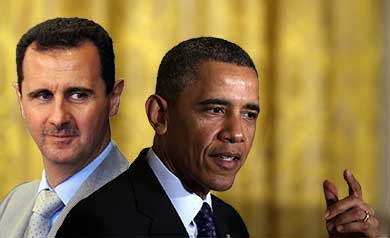Branding one's political opponents as 'phobic' is a
sly and illiberal tactic
By FRANK FUREDI
Poor Stephen Fry. Over the years he has been cavalier
about condemning certain people as homophobic. As a consummate practitioner of
the art of emotional correctness, he knows that the charge of phobia – whether
homophobia, Islamophobia, Judaeophobia, xenophobia and even Europhobia (hatred
of the EU) – rings all the right bells.
Yet now he finds himself on the receiving end of the
phobia slur - and he isn’t happy about it. He’s been accused of being nothing
less than an ‘Islamophobe’, after he defended the anti-religious crusader
Richard Dawkins’ stupid remarks on Twitter regarding Islam’s undistinguished
historical role.
‘Am I an Islamophobe?’, asked Fry in his cringing
defence of the right to criticise what he called ‘Islamofascism’. Depicting
himself as a lonely liberal valiantly fighting for unpopular causes, he
lamented that the ‘squeezed liberal finds himself in the position that cannot
criticise Islamofascism because it’s somehow “racist”’.
Unfortunately, Fry is very selective indeed in his
defence of the right to criticise beliefs and practices that one abhors. For
this squeezed liberal has no inhibitions about denouncing critics of gay
marriage as homophobes. Just as some dogmatic commentators insist on equating
the questioning of Islam with Islamophobia, so many defenders of the
gay-marriage consensus cannot imagine that their opponents might just have some
genuine intellectual or moral criticisms of gay marriage.
Allegations and counter-allegations of ‘phobia!’ point
to a disturbing development in the public life of Western societies. The
ascendancy of the metaphor of phobia is inversely proportional to the
depoliticisation of certain views and outlooks. For example, the displacement
of the term anti-Semitism by Judaeophobia represents the supplanting of a
political category (hatred of Jews) with a psychological one (irrational fear
of Jewish stuff). Similarly, through the narrative of Islamophobia, prejudice
against Muslim people is depoliticised and turned into a medical problem.
As is the case with all medical diagnoses, accusing
someone of being phobic is really to make a statement about that person’s
mental and moral condition. So the diagnosis of homophobia or Islamophobia is
not so much a comment on the content of what has been said, as it is a verdict
about the psychological deficits of the guilty, phobia-suffering party. When
Fry protested his innocence of the charge of Islamophobia, he was in effect
rejecting its implied psychological slur.
The rise of the narrative of phobia reflects the
increasing influence of the therapeutic culture, which tends to interpret
conflict and troublesome behaviour through the medium of psychology. In our
therapeutic era, emotional dysfunctions are frequently depicted as the cause of
social problems. Unprocessed or unmanaged emotions are said to be the source of
many of the ills that afflict society. Even wars between nations are now
attributed to some emotional or psychological defect on the part of a group or
leader. The early twentieth-century term xenophobia is no longer simply a
descriptive term; rather, it is a therapeutic diagnosis.
The irrational fears associated with all these
so-called phobias are said to be just a few of the many emotional disorders
that dominate life today. The diagnosis of phobia is a central part of a
therapeutic worldview which looks upon stress, rage, trauma, low self-esteem
and addiction as dominant features of the human experience.
The therapeutic worldview is not just about
medicalising individuals and our behaviour. It also tries to provide a system
of meaning through which human experience might be interpreted and understood.
In the twenty-first century, meaning is increasingly sought in the realm and
idiom of emotions. Through the policing of emotions, some attitudes are
condemned as negative and others held up as positive. So hate is a negative and
happiness a positive emotion. The range of emotions which fuel a ‘phobia’ are
all diagnosed as negative, which is why this sentiment can be so readily
pathologised.
Today’s meshing together of moral and medical
categories makes it very difficult to have a mature and tolerant exchange of
opinions. The labelling of someone’s speech, attitudes or behaviour as a phobia
shuts down discussion. It is not possible to have a genuine, substantive debate
or disagreement with someone who is diagnosed as phobic - after all, there is
little point in taking the arguments of irrational and psychologically
disturbed individuals seriously. Apparently, such people don’t have rational
political views; they are simply possessed of an irrational mental condition.
So the narrative of phobia absolves people of the
tough task of defending their views through debate, by inviting them to
medicalise their opponents and in the process close down discussion. The
medicalisation of political opponents represents a kind of existential
annihilation of those we disagree with. Diagnosed as irrational or ill, they
can be safely ignored; their opinions can be treated as symptoms of a mental
disorder, which we don’t have to take seriously.
The authoritarian implications of this resorting to
psychological demonisation are clear if we think back to Stalin’s Russia.
There, dissidents were sometimes incarcerated in mental-health institutions.
Today in the West, phobic individuals are not incarcerated, of course. But they
do face cultural and institutional stigmatisation. How long before ‘phobics’
are encouraged to participate in anger-management classes or pressurised to
have their awareness raised?
The dehumanising premise behind the narrative of
phobia, the systematic refusal to take seriously the mental capacities of one’s
opponents, is the apotheosis of closed-mindedness. When people refuse to submit
their arguments to full public scrutiny, on the basis that anyone who tries to
knock them down is a ‘hater’ or ‘phobic’, then issues are rarely clarified and
truth remains obscured. What we end up with is debatephobia.
No, Stephen Fry and his mate Richard Dawkins do not
suffer from Islamophobia. They are, to use an old-fashioned political
expression, just utterly wrong.







.jpg)




.jpg)



.jpg)
